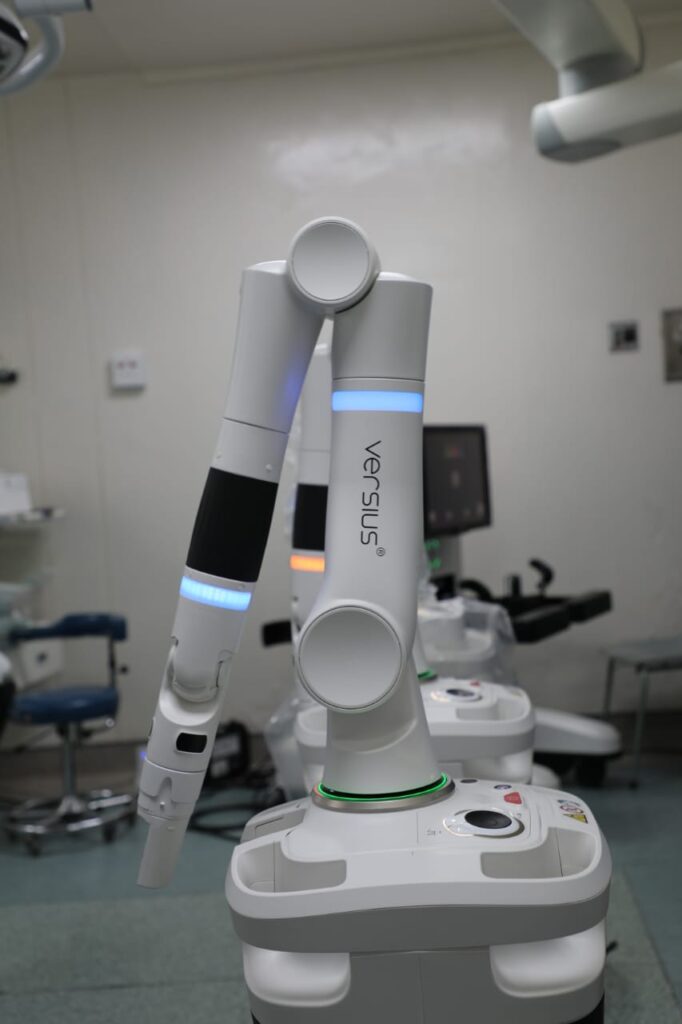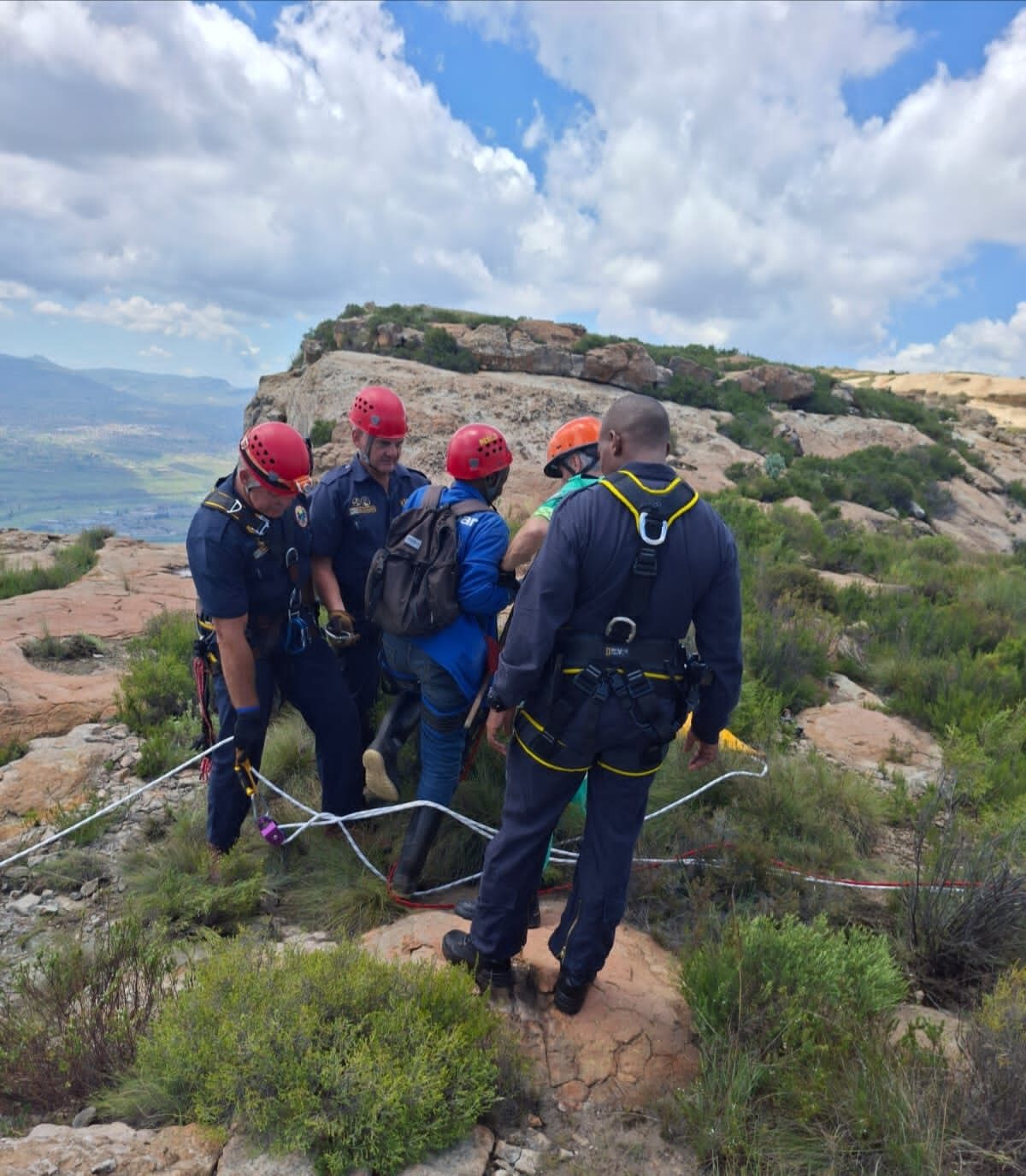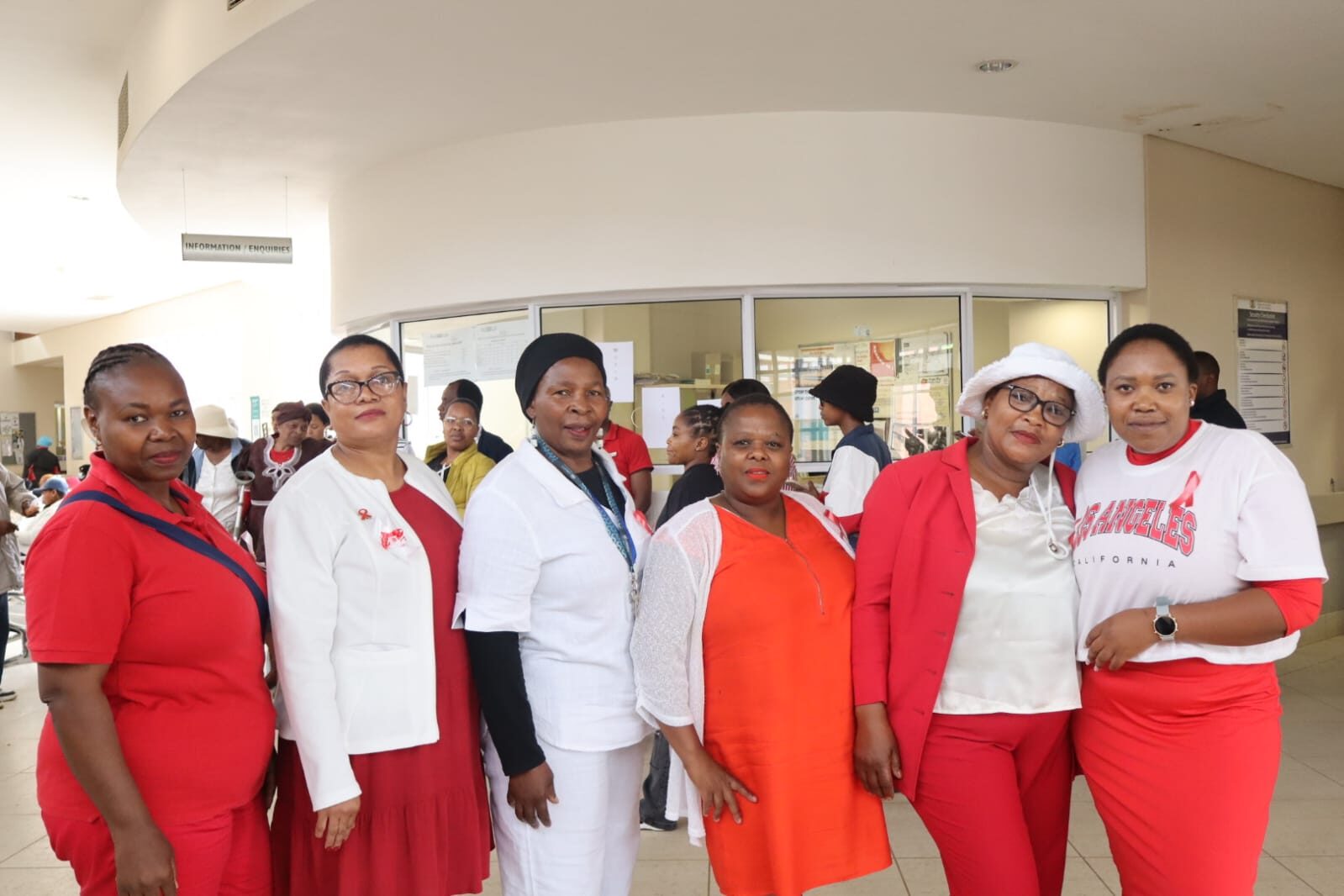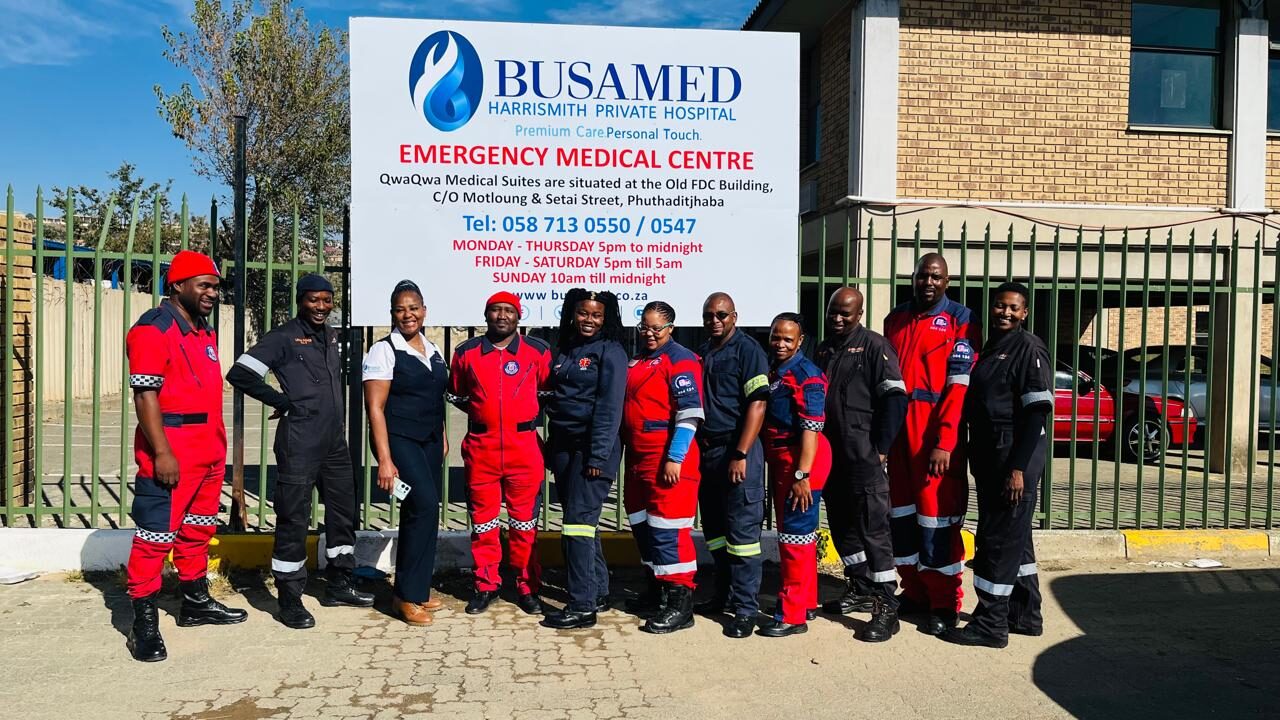By Staff Reporter
BLOEMFONTEIN – The Free State has become the first in Southern Africa to introduce the Versius Surgical Robotic System, a major advancement in health-care technology aimed at improving surgical precision and patient outcomes.
Premier Maqueen Letsoha-Mathae, speaking at the official launch at the University of the Free State (UFS) Faculty of Health Sciences on 11 March, said the province was cementing its reputation as an innovator in medical technology.
“This moment marks a significant milestone not only for our beloved Free State but for the entire health-care landscape in Southern Africa. With this ground-breaking system, we are not only enhancing surgical precision but also significantly improving patient outcomes,” Letsoha-Mathae said.
Since 24 February, surgeons at Universitas Academic Hospital have successfully completed nine robotic-assisted procedures, including radical prostatectomies and cholecystectomies. Prof Freddie Claassen, Academic Head of Urology at UFS and Universitas Hospital, was among the first to train on and operate the system.
UFS vice-chancellor and principal, Prof Hester Klopper, described the introduction of Versius as a step toward bridging the gap between technology and medicine. “As we launch the Versius Surgical Robotic System, we are not only celebrating the latest advancement in surgical technology but also reaffirming the University of the Free State’s continuing commitment to academic excellence, technological innovation, and societal impact,” she said.

The robotic system, designed for mobility and adaptability, integrates seamlessly into existing operating rooms without requiring major infrastructure changes. It is capable of performing procedures in various medical fields, including thoracic, colorectal, upper gastrointestinal, hernia, gynaecology, and urology.
Prof Vasu Reddy, UFS deputy vice-chancellor for research and Internationalization, highlighted the impact of robotic-assisted surgery.
“Unlike traditional surgery, which requires large incisions, robotic surgery enables doctors to perform operations with smaller cuts, reduced pain, and less scarring. “With robotic surgery, surgeons can now perform procedures with greater precision and accuracy, decreasing the chances of complications,” Reddy said.
He added that while the evolution of AI and robotics in medicine raises important questions, these technologies ultimately enhance human skill rather than replace it. “The future is where human innovation and machine precision work together to elevate the standard of care,” he said.
The Free State Department of Health, in partnership with UFS, aims to expand access to robotic-assisted surgery across both public and private health-care sectors. The introduction of Versius forms part of a broader strategy to position the province as a centre of excellence in health-care technology.



















